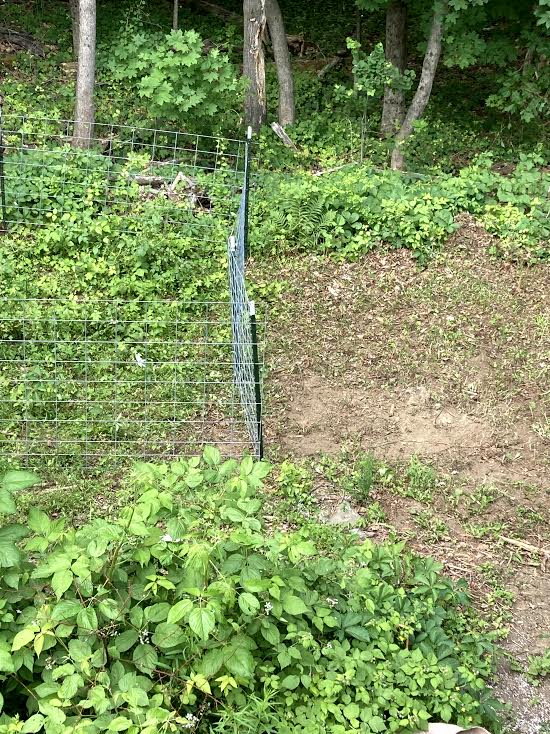
FARMINGTON – You’ve heard of landscaping, but how about goatscaping? Goatscaping is a natural and sustainable way to clear your land. The plants that are the most difficult to remove from your yard would typically require the use of harmful chemicals, but there is now another option: goats! Goats will eat anything, including poison ivy and raspberry bushes.
There are lots of goatscaping companies popping up around Maine. These businesses are gaining customers who now swear by the method. One of these is Lani Gordon, the recently retired instructor of the Early Childhood program at the Foster CTE Center. Gordon’s friend is interested in starting a goatscaping business and is using Gordon as a trial run.
Gordon’s main goal is to eradicate the poison ivy in her backyard and the goats have done a wonderful job according to Gordon. Gordon will continue to hire them as the poison ivy grows back up.
“They take it right down to the dirt,” Lani Gordon said about the goats. “They don’t bother me at all when they’re there, they just eat!”
According to Gordon, the goats aren’t noisy at all. They did, however, escape once and it was a community effort to retrieve them. “All the neighbors were out chasing goats!” Gordon said.
Overall, the experience of having goats work for her was a positive one for Gordon. “It’s fun to know I’m getting my backyard cleared, it’s all natural and it just feels good! It’s a great experience,” Gordon summarized.
Another company to spring up locally is Grazing Glory, based in Fairbanks. They currently have an operation of about ten goats, but are hoping to expand to forty or fifty in the next few years. Goats reproduce fairly quickly, so the herd is slowly and steadily growing. They are focusing primarily on smaller pieces of land.
One of the founders, Jack Clark, had the idea to start the business after returning from his service with the Peace Corps. During his time in Paraguay, Clark noticed that instead of mowing their small urban lawns, the locals would invite the neighbor to bring their cow over. This provided grazing for the cow and, in exchange, fresh milk for the people.
Once Clark returned to the States, he noticed that people were doing something similar and posting it on social media, but instead of cows, they were using goats. This inspired Clark to do something similar and he founded Grazing Glory, along with Alex Makris and Peter Clark.
One aspect of goatscaping that is difficult to control is the tendency for goats to escape. In Clark’s experience, it is much more useful to create a mental barrier rather than a physical barrier when trying to contain goats. They can easily break fences but they will be deterred by a little shock. When Clark first discovered this, he bought a cheap solar charger to power an electrical fence, but it wasn’t enough to do the trick. He found he needed more joules than are commonly used, so he had to invest in a more expensive solar charger and electric netting.
Clark’s favorite part about goatscaping is that it actually helps the soil, adding natural nutrients like nitrogen. It creates a symbiotic relationship with the goats and the soil, providing food for the goats and nutrients for the soil.
Clark discussed the advantages of using goats over mowing your lawn. Mowing doesn’t provide the soil with anything and it doesn’t completely solve the problem.
“What I really like about it is that it gives back to the soil,” Clark said. “[The goats] can completely run off of the weeds they eat. Mowing is great, but it’s not realistic to think nothing will grow.”
The costs of goatscaping are dependent on the site in question. Factors like size, required fencing and how difficult it is to reach the site all have an impact on the pricing. Aspects of the site that might add to the cost are thorn bushes, poison ivy, dense shrubbery and rocky ground. In areas that are hard for the goats to access and take care of, Clark is willing to go in with a chainsaw. Generally, the cost can range from $200 to $1000 per project. An easy-to-access field with a problem plant, for instance, would be on the lower end of the scale while an overgrown site with prickly raspberry bushes would be more expensive.
To learn more about local goatscaping and Grazing Glory Maine, visit their website at https://www.grazingglorymaine.com/ or call (207) 320-5107.




